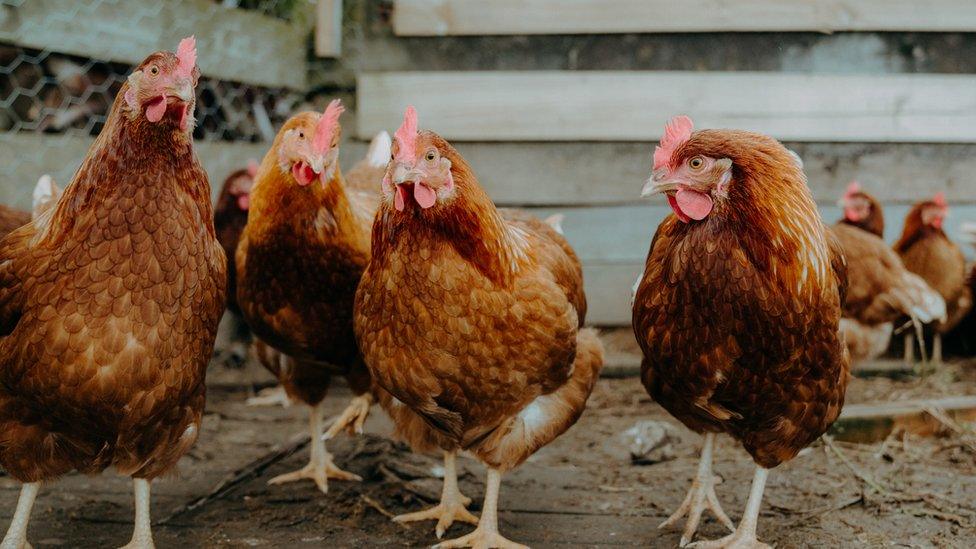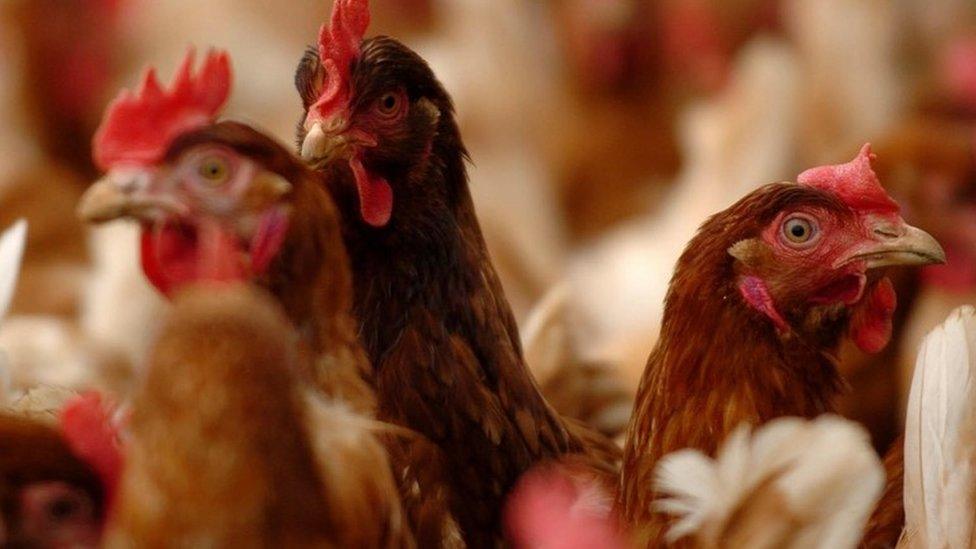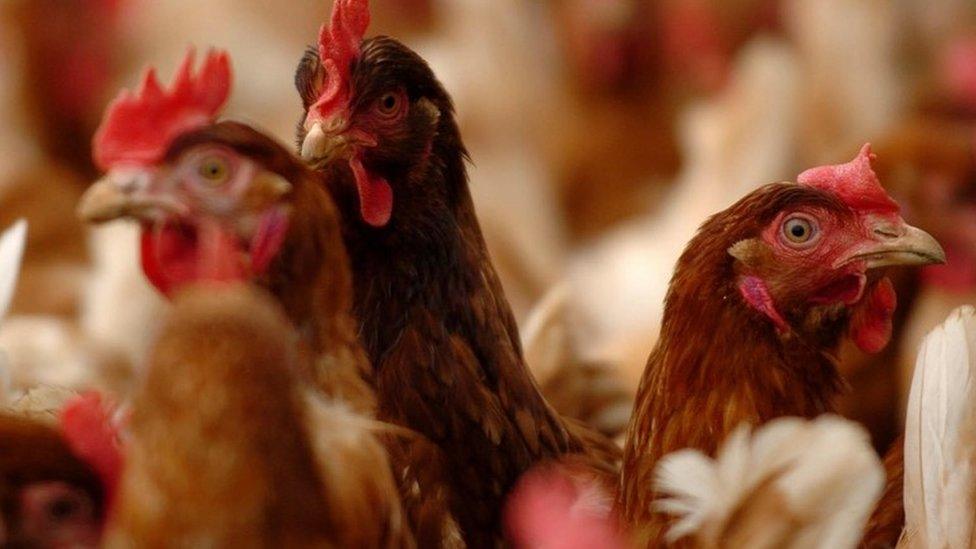Poultry disease infects 250,000 birds in Northern Ireland
- Published

ILT does not affect humans and has no human health implications
A quarter of a million birds in Northern Ireland have been infected with a poultry disease, the Department of Agriculture (Daera) has said.
ILT - or infectious laryngotracheitis - has broken out on 16 farms, in 14 commercial and two backyard flocks.
It is the first outbreak of ILT in the commercial sector for more than 10 years.
Ignatius McKeown, a veterinary officer at Daera, said it was a "nasty viral disease from the herpes group".
He said the disease caused symptoms which included gasping for breath, coughing, sneezing, increased mortality and loss of production.
The disease does not affect humans and has no human health implications.
Poultry farmers across Northern Ireland have until recently been following very strict biosecurity measures on farms, following an outbreak of bird flu at the beginning of the year.
'A very infectious disease'
Those measures should have been enough to stop any spread of ILT - but Mr McKeown said there has been a breakdown of the measures needed.
"It is a very infectious disease, this means it will rapidly spread if precautions aren't taken from one flock to another," he said.
While ILT can kill infected birds, they can also recover from the virus.
So unlike in cases of bird flu, there will not be any widescale culling of the birds.
Mr McKeown said the department is working with farmers to try to stop the spread.
"Daera has joined with poultry producers in forming a group to formulate a plan to react against this disease and put procedures in place to control the spread of the disease," he said.
"People with infected flocks are asked to keep poultry litter on their premises as long as possible. The longer the litter is kept on the premises the virus will reduce through time."
ILT is a notifiable disease so Daera needs to be alerted to any outbreak.
Related topics
- Published6 January 2021

- Published2 April 2021
